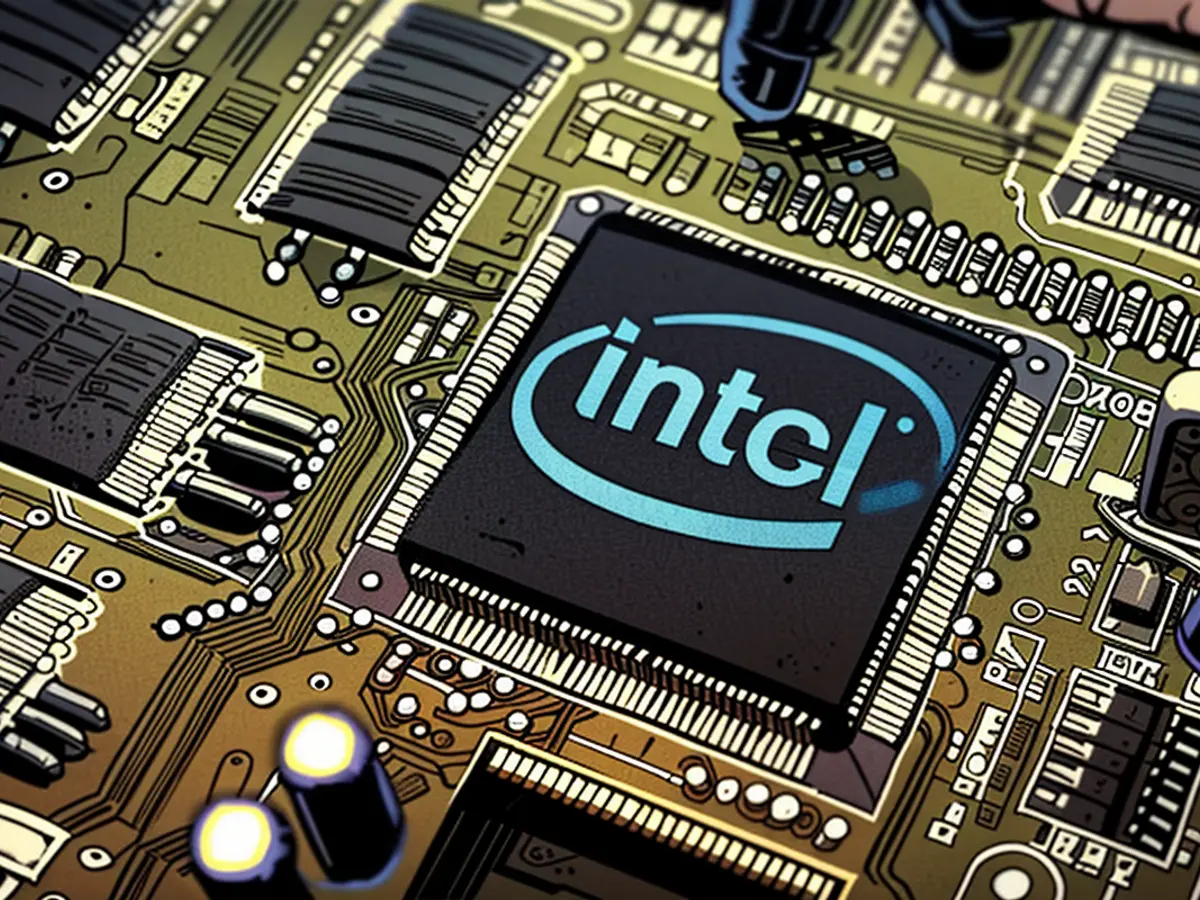Are Intel's plans for a chip factory in Magdeburg in jeopardy?
Intel is building a chip factory in Magdeburg for around 30 billion euros. However, due to a significant drop in profits, the semiconductor giant now plans to cut a large number of jobs and reduce costs. The state government of Saxony-Anhalt remains optimistic that the plans for the plant will not change.
The struggling semiconductor pioneer Intel is resorting to a drastic reduction in staff to quickly cut costs. Around 15,000 jobs - about 15 percent of the workforce - are set to be cut, as Intel CEO Pat Gelsinger wrote to employees. In total, he wants to save more than 10 billion dollars by next year.
At the start of today's trading, Intel's stock on the Wall Street plunged by nearly 30 percent at one point. According to data from the financial service Bloomberg, this was the worst drop for the stock in more than 40 years.
For the planned new chip factory in Magdeburg, this is bad news. While Gelsinger emphasized that Intel will stick to its "IDM 2.0" strategy, which involves expanding its own manufacturing capacities, he did not mention any specific investment plans in Germany, France, and Italy.
However, the state government in Magdeburg remains optimistic: "According to Intel, there are no changes to the plans for the location of Magdeburg," said Matthias Schuppe, spokesman for CDU Minister President Reiner Haseloff.
Intel awaits approvals for chip factory
The job cuts at Intel could even be more severe than announced in the email to employees: The press release spoke of a reduction of "more than" 15 percent, and the number of employees was given as 116,500 at Intel and around 125,000 in the group including subsidiaries.
Gelsinger's strategy for Intel's survival involves becoming a more significant contract manufacturer for other chip developers. The company aims to master the most modern production processes to compete with established producers like TSMC from Taiwan. At the same time, Gelsinger has positioned his company as a key element in plans to bring more chip production back to the West from Asia.
The plans also include the construction of a plant in Magdeburg, which is expected to cost around 30 billion euros and use the most modern production processes. Intel is still awaiting approvals, including for the billion-dollar subsidies that are supposed to cushion the costs. The first sod was previously targeted for the end of the year, with production starting in 2027.
Gelsinger emphasized that the contract manufacturing strategy remains fundamental. However, until there are firm orders, Intel will ensure that it does not build up too much capacity. The company has also adjusted its investment plans to the expected market development, said the Intel CEO without providing further details. The company also wants to build new factories in the US and secure billions in funding.
Competition on the PC market
Intel once dominated the chip industry but then fell behind. A crucial moment was the lost battle for the place in today's ubiquitous smartphones. Intel hoped to transfer its strength in the PC business to mobile devices, but power-saving processors with architectures from the British chip designer Arm prevailed. Smartphone chips therefore usually do not come from Intel, but from competitors like Qualcomm or TSMC.
Intel now also has to worry about its position in the PC market. Apple has switched the entire range of its Mac computers to Arm chips of its own design, resulting in significantly longer battery life. Microsoft also started using Arm-architecture chips like Qualcomm's Snapdragon processor in new Windows PCs with AI features this summer. While Intel-based computers are planned to follow, they have yet to hit the market.
Meanwhile, Intel had to watch from the sidelines as its once much smaller competitor Nvidia became the hottest address in the industry thanks to its chip systems for training artificial intelligence. Intel is also trying to get into this business but is far behind Nvidia.
"Our costs are too high"
Intel's cost-cutting measures include not paying a dividend for the time being from the fourth quarter. Capital expenditures are now to be 20 percent lower than originally planned.
In an email to employees, Gelsinger described Intel's cost structure as "non-competitive". "Our costs are too high, our margins are too low," he wrote, among other things. Last year's revenue was $24 billion less than in 2020, but the number of employees increased by 10 percent. Decisions were taking too long and there were too many friction losses in the system.
In the last quarter, Intel reported a loss of over $1.6 billion, compared to a profit of $1.48 billion a year earlier. Revenue fell by one percent to $12.8 billion (11.9 billion euros) year-on-year and missed analyst expectations.
Gelsinger described the last quarter's business figures as "disappointing". He also expects the situation in the second half of the year to be more difficult than previously expected. The Intel CEO had previously often reassured investors that improvement could be expected in the second half of the year.
The following cost-cutting measures announced by Intel include postponing dividend payments and reducing capital expenditures by 20%. Intel's CEO, Pat Gelsinger, stated in an email to employees that the company's cost structure is non-competitive, with costs being too high and margins too low.
Despite the job cuts and financial struggles, Intel continues to await approvals for its planned chip factory in Magdeburg, which is expected to cost around 30 billion euros and utilize the most modern production processes. The state government in Magdeburg remains optimistic about the plant's plans, as Intel hasn't indicated any changes to the Magdeburg location.








